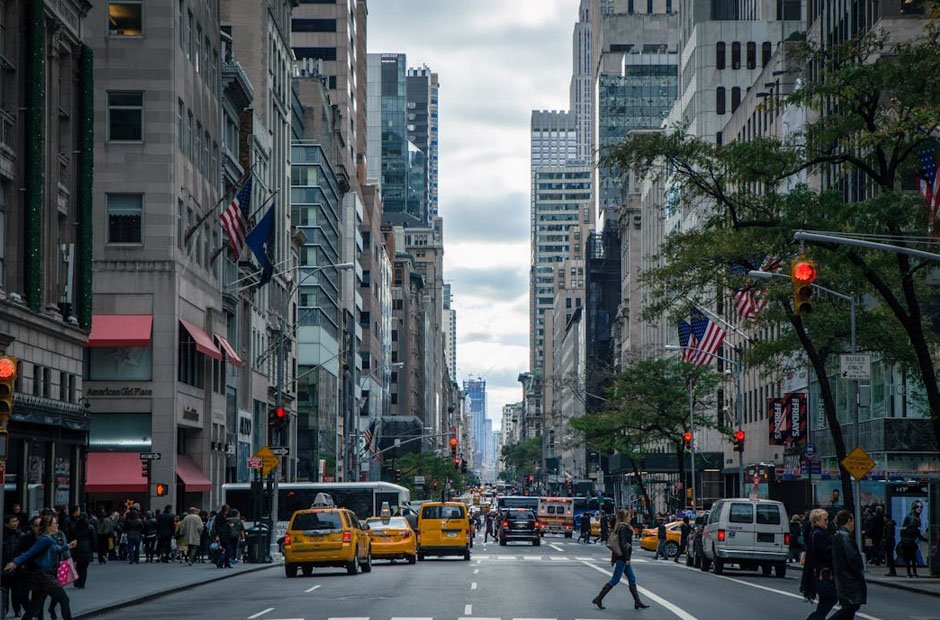
Hailing a ridesharing service like Uber or Lyft can be a convenient and affordable way to navigate unfamiliar cities or avoid the hassle of parking after a night out. The convenience factor takes a backseat when we talk about safety, especially if you’re involved in an accident while riding in a ridesharing vehicle.
Suddenly, you’re facing injuries, medical bills, and the complexities of navigating an unfamiliar insurance landscape. Ridesharing accidents are a different ball game — they have their unique legal challenges, as compared to traditional car accidents. This blog will tell you about why you shouldn’t deal with things alone after a ridesharing accident
Understanding Ridesharing Insurance Coverage
Uber and Lyft are ridesharing companies that have their own insurance policies. These provide coverage during different stages of a driver’s shift. Understanding which policy applies to your specific accident is critical.
For example, let’s say the driver was browsing the app but hadn’t yet accepted a ride request, the driver’s personal insurance might be primary. However, once a driver accepts a ride and is en route to pick you up or has you in the car, the rideshare company’s primary insurance policy kicks in. This policy typically offers higher coverage limits than a standard auto insurance policy.
Further complicating matters, there are different coverage stages within a trip. Once the ride ends, the rideshare company’s coverage often comes to an end as well.
Ridesharing accident law is also a developing area of law, and staying up-to-date on recent court rulings and legal precedents is crucial. An adept lawyer won’t be fazed; they’ll possess a deep understanding of the legal landscape and navigate your case based on the most current legal precedents.
A St. Louis man, Brandon Harper, survived a horrific rideshare crash that killed his driver, Crystal McAlpin, a mother of three. The accident occurred in September 2023 when the rideshare vehicle was hit by another car traveling at 90 mph, driven by Joe Lea. Lea has been charged with involuntary manslaughter. Investigators believe another driver, Tiesha Arman, also contributed to the crash by speeding and running a red light.
Harper is recovering from his injuries but faces long-term health issues. He hopes his story will raise awareness and contribute to creating safer streets in St. Louis.
It therefore helps, in complex cases like these, to have the right people on your side. For instance, if your accident/ridesharing incident were to occur in St.Louis, Missouri, it would only benefit you to have St. Louis personal injury lawyers by your side. A lawyer can decipher the complex web of rideshare insurance policies and determine which ones apply to your situation, maximizing your potential compensation.
Determining Fault in a Ridesharing Accident
Ridesharing accidents often involve multiple parties. This makes it difficult to pinpoint who is responsible for the situation at hand. The following parties could potentially be liable:
- The Rideshare Driver: If the rideshare driver was negligent or caused the accident while under the influence, they could be held accountable.
- The Driver of Another Vehicle: Just like in any other car accident, the driver at fault for the collision could be responsible for your damages.
- The Ridesharing Company: In some cases, the rideshare company itself might be liable if the accident resulted from a malfunction of the rideshare vehicle or inadequate driver background checks.
The lawyers’ investigation must be thorough, involving reviewing police reports, witness statements, dashcam footage, and the rideshare company’s app data to reconstruct the events leading up to the accident.
Ridesharing companies are big businesses with legal teams that focus on reducing payouts for accidents. They might try to downplay your injuries, reject your claim entirely, or offer you much less money than you deserve. As per TorHoerman Law, the claims process with rideshare companies is complicated. While they may appear helpful initially, their adjusters might unintentionally undervalue your injuries or their impact on your life.
Beyond Car Crashes: Addressing Other Ridesharing Accidents
While car crashes are the most common type of ridesharing accident, other incidents can also occur. These might include:
● Passenger Assaults
Unfortunately, rideshare passengers can sometimes be assaulted by the driver or another passenger.
In a recent incident on one late night in April 2023, a woman in Irvine, California says she was raped by her Uber driver, Daniel Mercado. The lawsuit against Uber claims the company failed to properly vet Mercado, who has a history of violence.
The woman says Uber didn’t follow up after the ride stopped for an extended period, even though she had a safety feature enabled. Uber denies the allegations and says it takes sexual assault seriously. A judge’s decision on whether to combine this case with a larger lawsuit against Uber is awaited.
The Uber passenger sexual assault class action lawsuit continues to grow, with 12 new cases added in the past month alone. This brings the total number of pending cases before the Multidistrict Litigation (MDL) court to 252 as of May 1st, 2024.
● Car Trouble Causes
If a mechanical problem with the rideshare vehicle played a role in the accident, your lawyer can investigate whether the rideshare company failed to properly maintain the vehicle, potentially holding them liable for your damages.
Whatever may be the case, remember that time limits apply — don’t miss your chance to seek compensation. Ensure you meet these deadlines called the statute of limitations, by consulting with a lawyer.
FAQs
1. Should I Report a Rideshare Accident to the Rideshare Company?
Yes, absolutely report any rideshare accident to the company right away. They have a specific process for reporting accidents, so follow their guidelines to ensure everything is documented properly. This protects you and helps them investigate the incident.
2. Can I File a Rideshare Accident Claim if the Driver Was Speeding?
Yes, speeding by the rideshare driver could be grounds for a claim. If the driver’s excessive speed contributed to the crash, you could hold both the driver and the rideshare company accountable for your damages through a lawsuit.
3. What if I Didn’t Have My Seatbelt on During the Rideshare Accident?
While not wearing a seatbelt might affect the amount of compensation you receive, some states have laws preventing insurance companies from completely denying your claim based on this factor. A lawyer can advise you on the specific laws in your state.
As we wrap up, it’s important to acknowledge the role of these companies in addressing our concerns. They are continuously implementing new safety measures. This includes enhanced driver screening procedures, in-app safety features like ride tracking and emergency buttons, and driver safety training programs.
It’s crucial to remember that while these measures are positive steps, the risk isn’t eliminated. Staying vigilant and aware of your surroundings remains important for both riders and drivers





